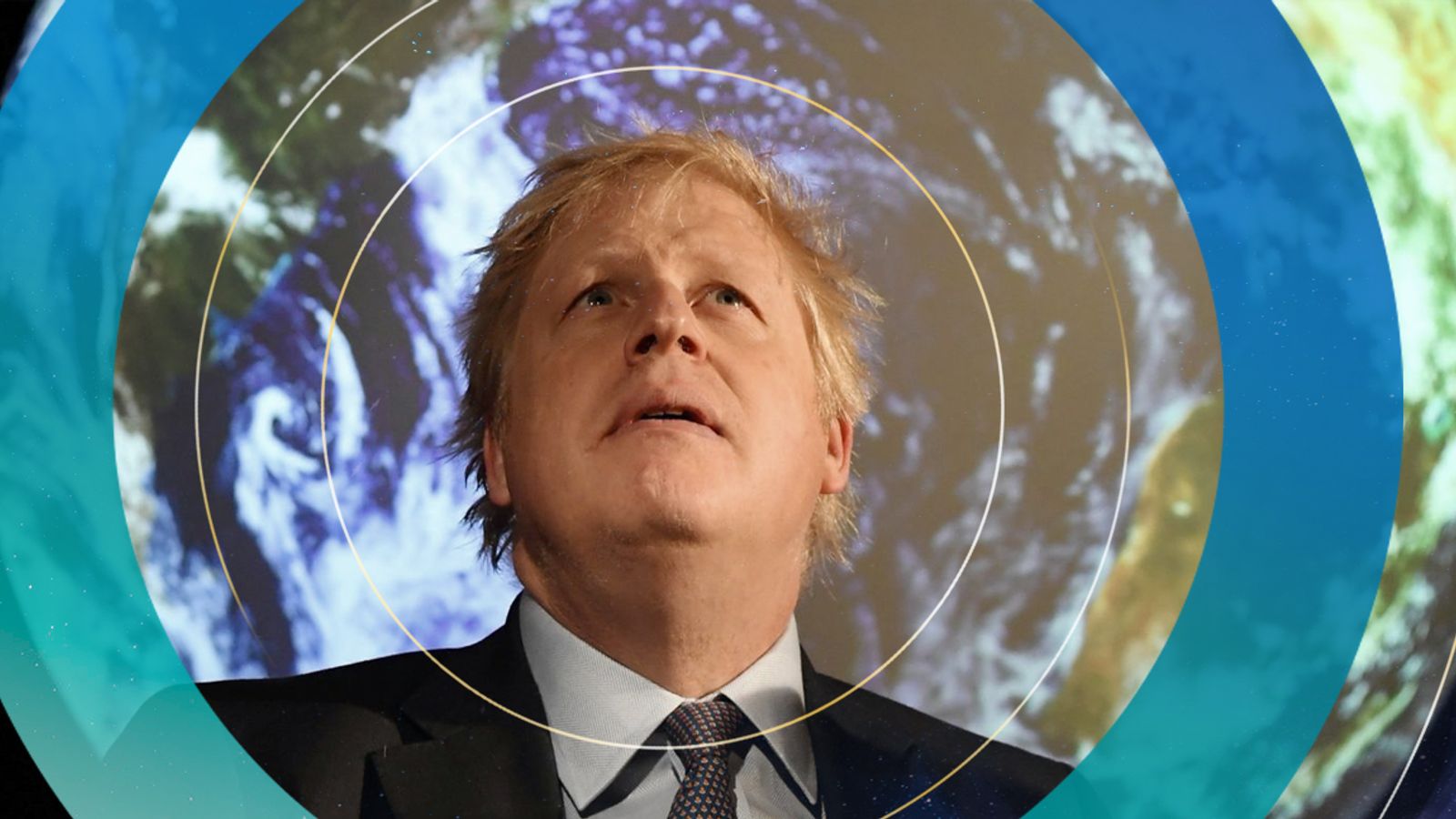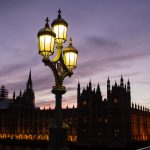The UN climate report lays out the looming risks to the world but it also ratchets up the political risks for the UK government.
As delegates from across the globe arrive in Glasgow for the COP26 climate conference in November, expectation of achieving meaningful international commitments on emissions will run high.
Getting there will mostly be about diplomacy and cajoling on the world stage.
Please use Chrome browser for a more accessible video player
Hence why government officials were somewhat miffed at recent criticism of the dozens of foreign visits made by COP26 President Alok Sharma this year.
“You cannot do the job on Zoom”, said one.
But with the eyes of the world on Glasgow, the UK’s own record and intentions on climate action will come into full focus.
So how is the country doing? Well at a first glance; so far so good.
Carbon emissions have reduced by 45% since 1990.
The issue is, that may be the easy bit.
Reductions in the last three decades have been achieved behind closed doors through a move away from coal and towards renewables.
Please use Chrome browser for a more accessible video player
To reach the next targets, changes will need to take place in people’s homes, businesses and daily lives.
A delayed heat and buildings strategy will be released next month spelling out how homes and offices can be decarbonised.
That has stalled as ministers attempt to hammer out how best to incentivise families to make the switch and crucially, who pays.
Boris Johnson admitted last month that at “£10,000 a pop”, new eco-friendly heat pumps were “a lot of money for ordinary people”.
“We’ve got to make sure that when we embark on this programme that we have a solution that is affordable and that works for people”, the prime minister said.
Concern is already sparking on the backbenches though.
A “net zero scrutiny group” is currently being set up Conservative MP Craig Mackinlay who’s warning against a “dash” towards “huge societal change” in an attempt to chest beat in Glasgow.
There are also concerns about the impact of decarbonisation on lower income households and the electoral effect on the party’s newly-won “red wall” seats.
Political figures in those regions bristle at the somewhat stereotyped assessment that their voters are innately hostile to green policies though.
“We get sick and tired of these stories that often come from southern MPs… what voters here care about is that green investment is bringing jobs”, said one person.
But one northern Tory did say the government needed to bring the public with them more by spelling out a “clearer link” between the aspiration and where we are now.
“There needs to be more carrot and less stick,” said the MP.
In some areas, that is already materialising amid a conscious effort to kill two political birds with one stone by focussing green tech investment on regions also earmarked for “levelling up”.
But decarbonisation works both ways.
Ministers have found it tough to shelve a planned new coal mine in Cumbria as they try and strike a balance between jobs and the environment.
Then there is the issue of electric cars.
How can ministers incentivise people to ditch their diesels?
Subscribe to ClimateCast on Spotify, Apple Podcasts, or Spreaker.
How can they plug a looming hole in the public balance sheet as fuel duty and vehicle excise duty – both not paid by electric car drivers – shrink into absence?
All this for a government also wrestling with how to pay for social care reform, NHS backlogs and education catch up.
But amid all these difficult economic choices, the evidence suggests delaying or doing nothing would cost more in the long run.
The government’s independent economic forecaster, the Office for Budget Responsibility, said last month the cost of unmitigated climate change would cause debt to spiral to 290% of GDP by 2100 as the country is forced to adapt to a warming climate.
The OBR also says that early action to curb emissions will cost less overall than a delayed response.
So with the scientists, economists and politicians apparently in line on the need for the next decade to be decisive for the warming world, the stage is now set for Glasgow in November.
A big moment for the UK. A bigger moment for the planet.
Sky News has launched the first daily prime time news show dedicated to climate change.
The Daily Climate Show is broadcast at 6.30pm and 9.30pm Monday to Friday on Sky News, the Sky News website and app, on YouTube and Twitter.
Hosted by Anna Jones, it follows Sky News correspondents as they investigate how global warming is changing our landscape and how we all live our lives.
The show also highlights solutions to the crisis and how small changes can make a big difference.






















